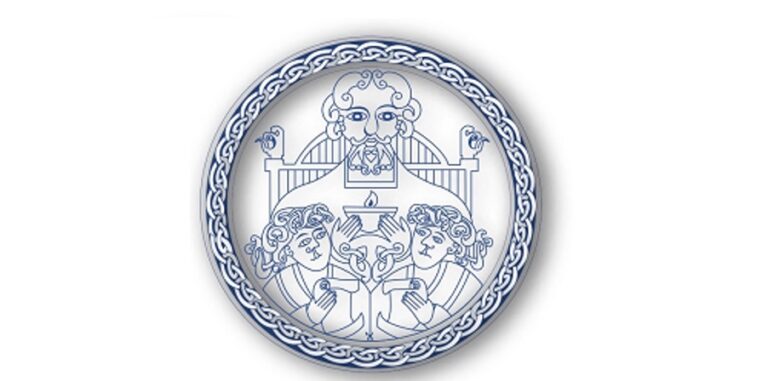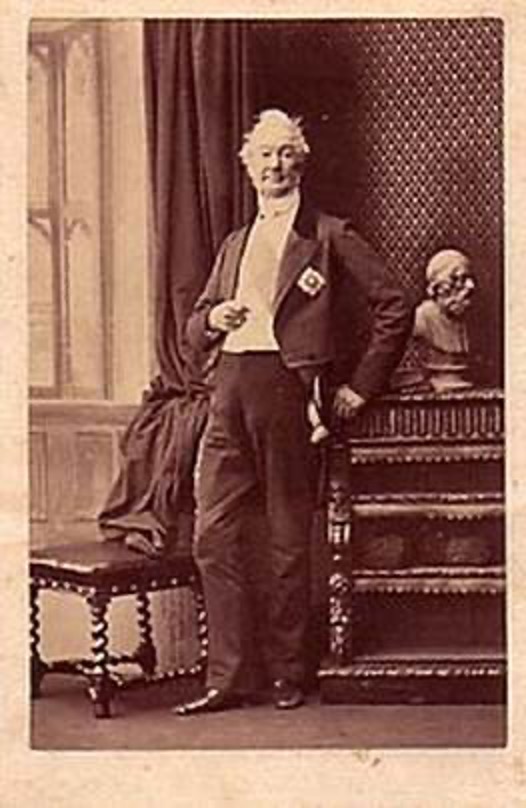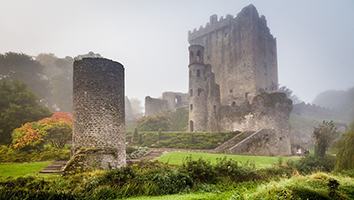The Standing Council of Irish Chiefs

The organisation known as The Standing Council of Irish Chiefs was established in 1991 to represent the hereditary Gaelic ‘chiefs-of-name’ then accepted and given courtesy recognition by the Irish Government’s ‘Office of Chief Herald of Ireland’.
A constitution was promulgated and regular meetings were held, to include a reception and photo shoot with the then President of the Republic, Mary Robinson. The organisation started off with much support for having ‘revisited’ a part of the history of Ireland and its noble families which had often been neglected and misunderstood.
There did not appear initially to be any mechanism developed for recognition of new chiefs or claimants, as that process continued within the province of the Chief Herald’s office with the Standing Council accepting the decisions of the Chief Herald.
In 1999, a leading member and voice of the Council was exposed as fraudulent and that action caused obvious and severe embarrassment to the Council. Then some others previously ‘certified’ by the process of ‘courtesy recognition’ had their claims disputed as well in a very public manner. And then in 2003 the Office of Chief Herald was stripped of the right to grant ‘courtesy recognitions’ altogether, judged as never having had that legal right in the first place (from 1944). This was a correct judgement in that the Irish Republic was and is a ‘successor’ state to Gaelic order governments and had and has no right to legislate about customs / laws of previous governments.
However, the demise of the ‘courtesy recognition’ system has thus created a situation where there is in effect no authority other than the Standing Council of Irish Chiefs to pass on applications for membership to the Council (it previously – contrary to reason – accepted the ‘listing’ of a chief by the Chief Herald as permission to admit a person to membership)!
Nevertheless re past practices, the Council represents continuity of law and custom as existed when there was de-facto Gaelic rule. Having said that, this is not to say that the Standing Council has the right to determine processes which belong to each and every Irish chiefly family in regard to their rules for succession. But given the absence of any other overall authority, the Council could validate that successions are correct in terms of accepted descent rules. And thus be a ‘registry’ for successions of individual families, though again the Council has no rights over the successions. It is NOT an approval authority but can be a registry, and can also foster interactions beneficial to Irish culture, etc. among its members and their clans/septs.
There has been criticism of the Council for not really having acted as regards anything (or anything much) since the Terence affair of 1999. It is gaining a negative reputation as a result of its inaction, and that is unfortunate.
It also appears that the Council has not accepted the 2003 government edict and decision cancelling the policy of ‘courtesy recognition’, and still refuses to take responsibility for its own admissions. For example, several people (to our knowledge) have applied for admission to the Council (as far back as 2001), but no actions have been taken, again probably relating to the fact that no procedures for validation were set up and /or no actions have been taken deliberately. As of now, therefore, it still appears that nothing has been promulgated in terms of any procedures one should employ to make application, have his proofs studied, etc.
The new MacCarthy Mor made an inquiry along these lines on 1 September 2011 and was told that there will be no further admissions until a new ‘convenant’ is worked out with the current Irish government. In effect this means that the SCICC will admit no one without a return to the pre-2003 policy whereby the Office of Chief Herald was the ‘approving’ authority for admissions to the SCICC! Most do not think that there will ever be a return to that policy on the part of any Irish government, given the very public governmental total rejection of the policy with the admission that it was never correct or legal in the first place! Based on the reply of the SCICC and the information it provided, the MacCarthy Mor declined to file a petition for admission.
Most people continue to urge the SCICC to take responsibility for its own admissions.
Update, July 2012: we have had replies from the Chief Herald of Ireland and the Director of the National Library (to whom the Chief Herald reports) that in no way is there to be any initiative to restore the discredited ‘Courtesy Recognition’ policy which was eliminated in 2003. This would indicate even more strongly that the SCICC should take ‘responsibility’ for its own admissions!
There is some information about the Standing Council on the internet, but the Council does not maintain its own website. This Association applauds the creation of the Standing Council of Irish Chiefs.
The Standing Council is certainly now the only proper agency for the work of preserving the grouping of the hereditary chiefs of Gaelic names in an organised and communal form (and indeed the Irish chiefs of non-Gaelic families which became ‘gaelicised’ and are not now part of the Council’s agenda, but could be if the Standing Council so wishes at some stage). We applaud the sponsorship of the Standing Council of an annual prize for Gaelic studies and its other initiatives.
A new and updated official pronouncement on the Council’s own system of approvals or disapprovals of applicants would seem to be in order, based on the exit of the government from the ‘courtesy recognition’ business in 2003.
The ‘twilight zone’ existing since 1999 and particularly since 2003 has served only to cause public polemics, with charges flowing back and forth among claimants to chiefships and their critics. This benefits no one and the Council should exercise leadership as regards to solving these scandalous problems.
The Clans of Ireland Ltd

This organisation was founded with help from the Irish government, in 1989. The man who claimed the styling of O Connor Kerry was a leading participant in its organisation. Its purpose was and is to assist in the organisation of Irish families into recognisable ‘clans’, headed by an elected honorary chief (where an hereditary chief does not exist, which is the case for the overwhelming majority of families).
Clans of Ireland Ltd has been successful. Yes, the initial interest by the government involved the realisation that increased tourism would be a beneficial result of organising Irish families. The Scottish experience along the same lines was a shining example of the benefits gained by a country having ‘clans’ and clan gatherings, etc.
But beyond ‘tourism’, the organisation has provided service in not only helping with family communications via ‘grouping’ under the common surname, but in also assisting in many other areas: genealogy, public lectures, publicity for clan events, coordination of numerous requests for everything from area maps to finding speakers for visiting groups.
The organisation does not in any way enter into the area of approving / judging any hereditary claims and as such is not engaged in any genealogical research (but helps people searching for their roots by putting them in contact with people of similar name known to Clans of Ireland Ltd, or by providing lists of reputable genealogists who are members of the professional society of such in Ireland). The organisation has an elected Board of Directors, with rotating elections so as to ensure fresh views along with continuity of leadership.
And Clans of Ireland has never been inward-looking. It from its foundation accepts all septs or clans which have Irish roots, and wish to be represented as members of Clans of Ireland (having shown only that the leadership represents the initiative of a group of a family name to begin with).
In short, it is not open to just families with Gaelic names, but to all irrespective of the origin of the root of the family: those of Norman-Irish heritage whose families go back prior to 1600 in Ireland; those of Anglo-Irish (new English) ancestry; Norse; English; Gallowglass; any others (Palatine, Huguenot, etc.) with historic presence in Ireland. Thus it is for all Irish families, for all those who are Irish by their history and / or family choice.
Clans of Ireland Ltd maintains a very public website, is responsive to all inquiries, and publishes a list of its clan members and governing board. It also has an Order of Merit and each year deserving people who have served Irish cultural history are admitted as ‘companions’.
The organisation makes a real contribution to helping others to be cultural custodians of their own family histories. Clans of Ireland works with the Standing Council of Irish Chiefs; and a few members of the latter support their ‘clan’ activities within Clans of Ireland, and indeed have participated in events sponsored by Clans of Ireland.
The Irish Peers Association
(Titles Emanating from the British Crown)



This organisation was founded with help from the Irish government, in 1989. The man who claimed the styling of O Connor Kerry was a leading participant in its organisation. Its purpose was and is to assist in the organisation of Irish families into recognisable ‘clans’, headed by an elected honorary chief (where an hereditary chief does not exist, which is the case for the overwhelming majority of families).
Clans of Ireland Ltd has been successful. Yes, the initial interest by the government involved the realisation that increased tourism would be a beneficial result of organising Irish families. The Scottish experience along the same lines was a shining example of the benefits gained by a country having ‘clans’ and clan gatherings, etc.
But beyond ‘tourism’, the organisation has provided service in not only helping with family communications via ‘grouping’ under the common surname, but in also assisting in many other areas: genealogy, public lectures, publicity for clan events, coordination of numerous requests for everything from area maps to finding speakers for visiting groups.
The organisation does not in any way enter into the area of approving / judging any hereditary claims and as such is not engaged in any genealogical research (but helps people searching for their roots by putting them in contact with people of similar name known to Clans of Ireland Ltd, or by providing lists of reputable genealogists who are members of the professional society of such in Ireland). The organisation has an elected Board of Directors, with rotating elections so as to ensure fresh views along with continuity of leadership.
And Clans of Ireland has never been inward-looking. It from its foundation accepts all septs or clans which have Irish roots, and wish to be represented as members of Clans of Ireland (having shown only that the leadership represents the initiative of a group of a family name to begin with). In short, it is not open to just families with Gaelic names, but to all irrespective of the origin of the root of the family: those of Norman-Irish heritage whose families go back prior to 1600 in Ireland; those of Anglo-Irish (new English) ancestry; Norse; English; Gallowglass; any others (Palatine, Huguenot, etc.) with historic presence in Ireland. Thus it is for all Irish families, for all those who are Irish by their history and / or family choice.
Clans of Ireland Ltd maintains a very public website, is responsive to all inquiries, and publishes a list of its clan members and governing board. It also has an Order of Merit and each year deserving people who have served Irish cultural history are admitted as ‘companions’.
The organisation makes a real contribution to helping others to be cultural custodians of their own family histories. Clans of Ireland works with the Standing Council of Irish Chiefs; and a few members of the latter support their ‘clan’ activities within Clans of Ireland, and indeed have participated in events sponsored by Clans of Ireland.
